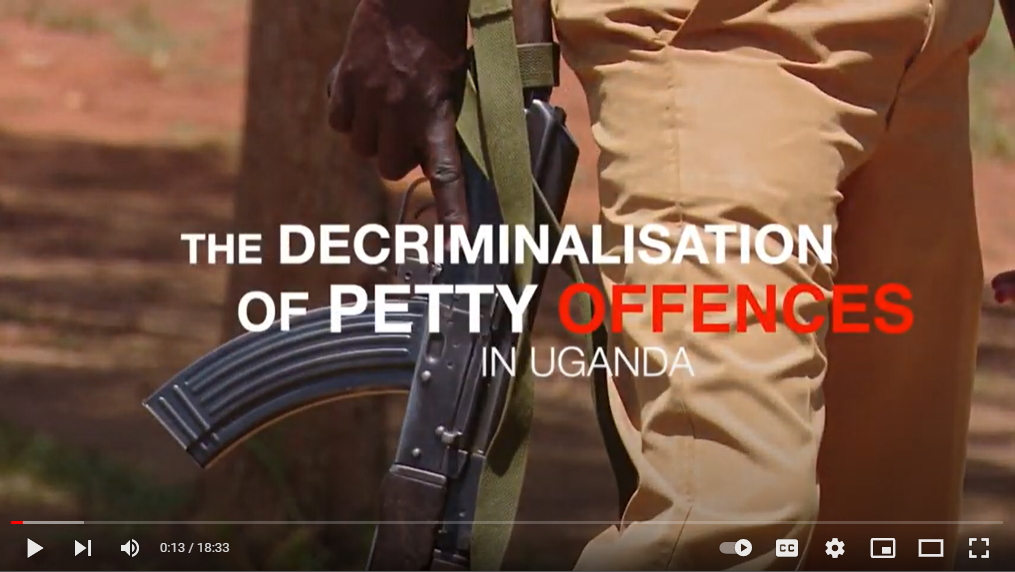Criminal laws, particularly those providing for petty offences such as vagrancy laws, have consistently been used to arrest, detain, evict, or exploit the labour of persons who are deemed unfit to occupy public spaces. The continued enforcement of these laws often shows no regard for the individual right to dignity, fair trial, and freedom of movement and hence provides a basis for gross violation of the human rights of poor and vulnerable populations especially those in cities and major urban centers.
Petty offences in Uganda such as being a rogue and vagabond under section 168, touting, failure to pay debts, loitering to mention but a few are all under the Penal Code Act Cap 120. Though not targeted at the poor and vulnerable, these laws end up being enforced in a discriminatory manner and result in arbitrary and unlawful arrests of the poor, marginalized and vulnerable. Petty offences are inconsistent with the universal principles of equality and non-discrimination before the law, principles and rights guaranteed under Article 21 of the 1995 Constitution of Uganda and under Article 2 and 3 of the African Charter on Human and Peoples Rights.
HRAPF with support from the Open Society Initiative of Eastern Africa (OSIEA) and the Coalition to Decriminalise and Declassify Petty Offences (CODPO) aired a documentary of the Implications of Petty Offences in Uganda.


